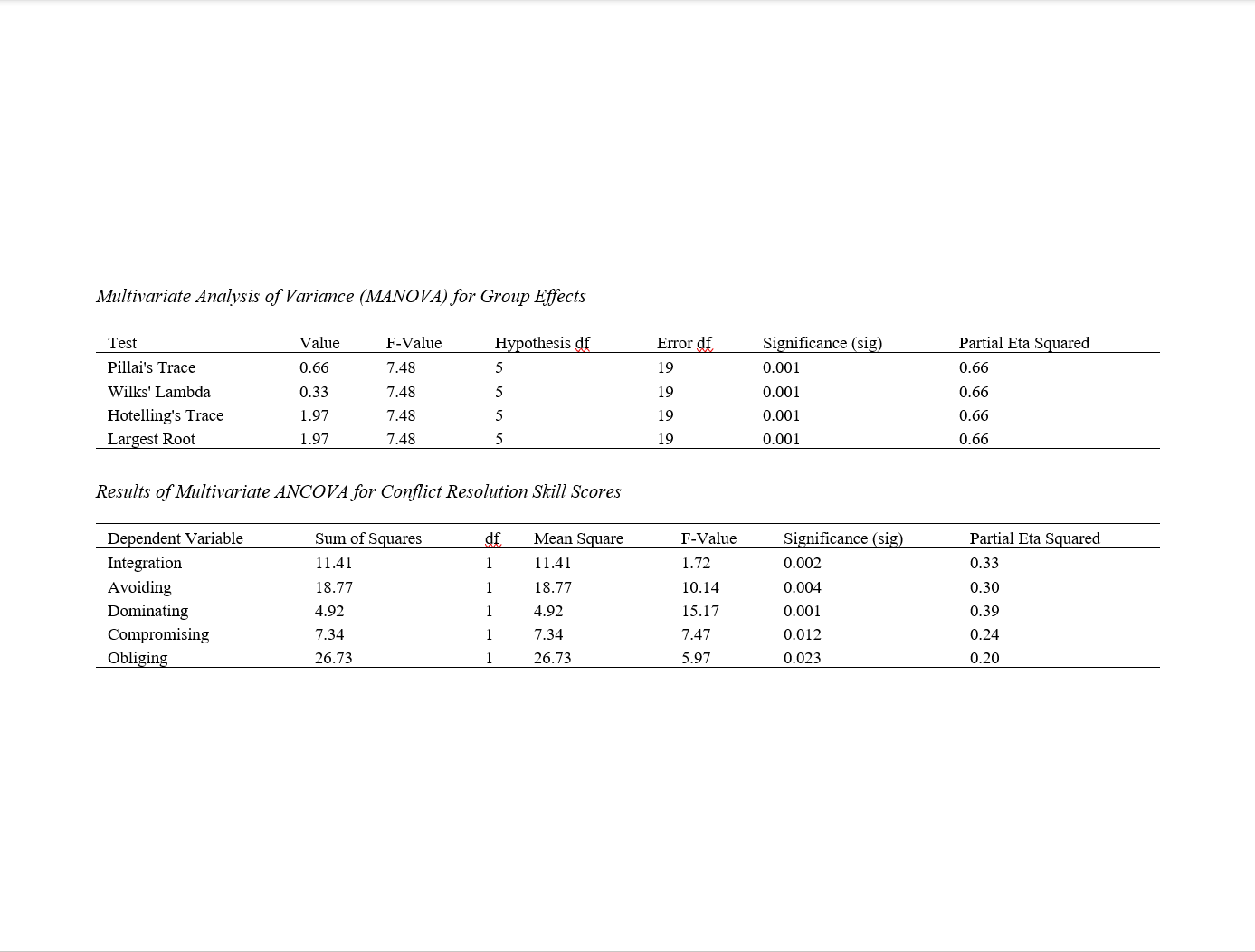The Effectiveness of Emotion Regulation Training on Conflict Resolution Skills in Married Female Students
Keywords:
Emotion regulation training, Conflict resolution skills, Married students, WomenAbstract
The present study aimed to investigate the effect of emotion regulation training on the level of conflict resolution skills in married students. The importance of emotion regulation as one of the psychological skills in improving quality of life and interpersonal relationships, particularly among young couples, is noteworthy. This semi-experimental study was designed using a pretest-posttest method with a control group. The statistical population included all married female students of Islamic Azad University, Garmsar Branch, in 2023. Using a purposive sampling method, 30 female students were randomly assigned to experimental and control groups (15 participants in each group). Data collection was conducted using the Rahim Conflict Resolution Styles Questionnaire (1983), whose validity and reliability had been previously confirmed. Emotion regulation training was implemented using a package based on Gross's model (2007). Data analysis was performed using analysis of covariance (ANCOVA) with SPSS software. The results indicated that emotion regulation training significantly increased the level of conflict resolution skills in married students. These findings confirm that educational interventions in emotion regulation can enhance conflict resolution skills and consequently improve individuals' psychological capabilities in facing daily life challenges, especially in married individuals. These results also underscore the importance of focusing on psychological education in academic settings.
Downloads

Downloads
Additional Files
Published
Submitted
Revised
Accepted
License
Copyright (c) 2024 Behnaz Baghdadi (Author); Sara Haghighat (Corresponding Author)

This work is licensed under a Creative Commons Attribution-NonCommercial 4.0 International License.







